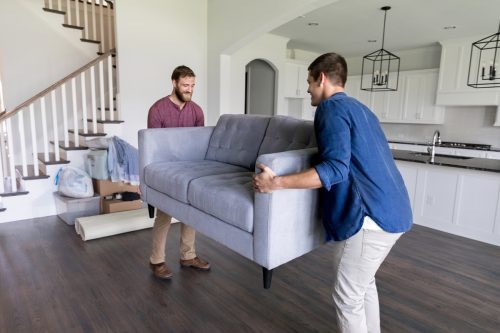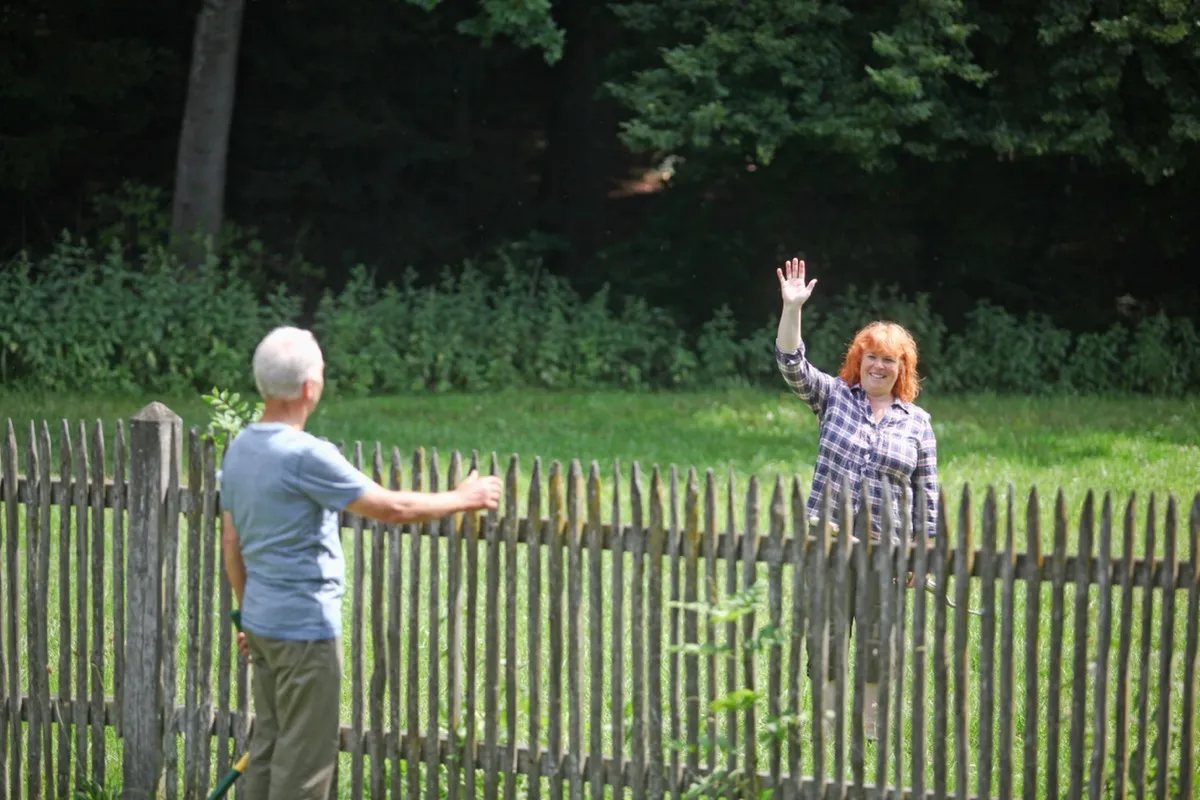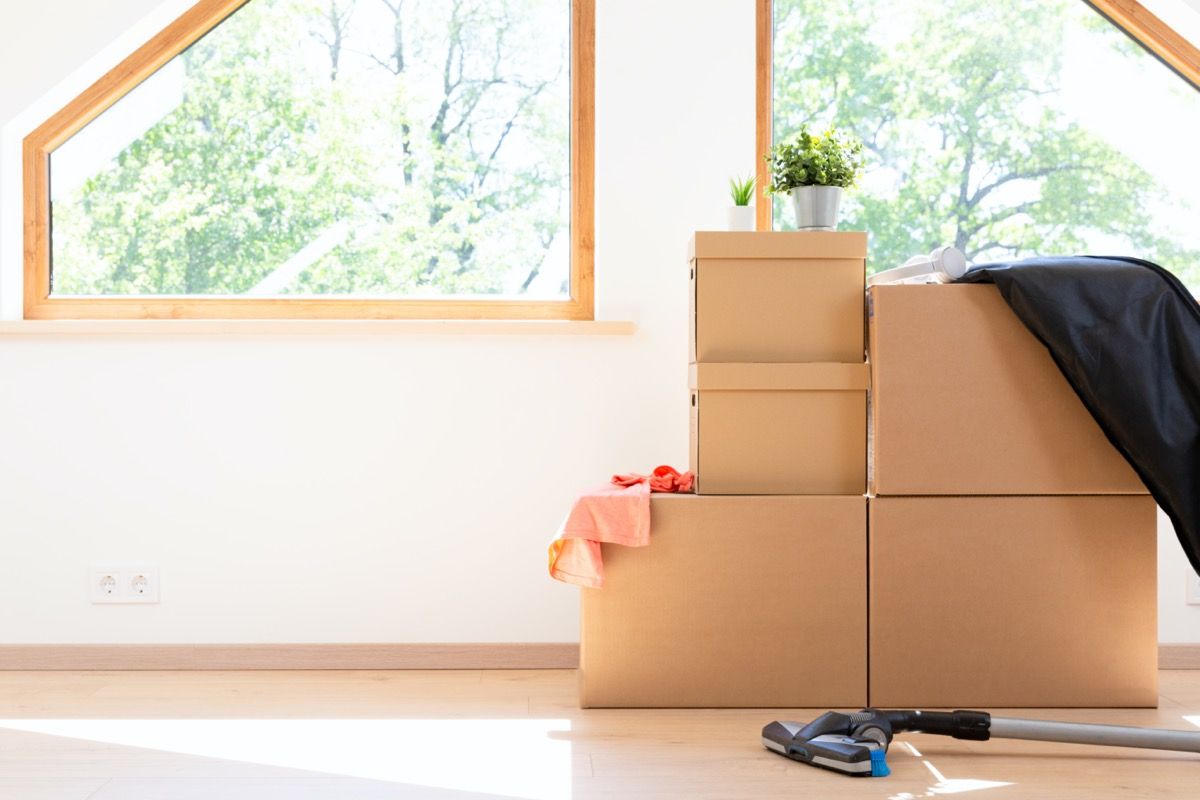7 Surprising Reasons You Might Regret Downsizing Your Home

There are many reasons that right now might be a great time to consider downsizing your home. In fact, experts say that beyond the obvious financial benefits of trading your home in for something smaller and more economical, you may also enjoy a simpler lifestyle, a more accessible space, and fewer maintenance demands. However, a big move isn’t for everyone—and after settling into a new space, some people come to wish they hadn’t downsized. Before you make a move yourself, knowing their reasons can help you weigh the risks and benefits of cashing in on your property. Read on to learn the top seven reasons people regret downsizing their homes, according to real estate experts.
RELATED: 7 House Hunting Tips If You’re Over 60, According to Real Estate Experts.
1
There are usually unforeseen expenses.

Though downsizing your home will most often come with financial benefits, Zev Freidus, a realtor and the founder of ZFC Real Estate, says some people may come to find that the payoff is less than they expected. Usually, this is because unforeseen expenses offset the benefits of moving into a smaller space.
“Downsizing usually comes with a lot of hidden expenses. For instance, you may need to purchase new furniture that fits in the room or realize that your old pieces don’t fit through the doorways anymore. It’s important to factor in such costs when making decisions about downsizing and budget accordingly,” he tells Best Life.
RELATED: The 6 Best Small Towns to Retire In.
2
You may lose functionality in addition to square footage.

If you’re considering a move precisely because you have lots of unused space, you may not anticipate missing it later. However, many people regret losing bonus spaces that can have unseen functionality.
“People often overlook the importance of living space when they downsize. In many cases, they end up with much smaller square footage than before and miss the freedom of having more space to move around in. It’s important to think about how you will use your home and consider if downsizing would be suitable for your lifestyle,” Freidus says.
The problem can be especially glaring when friends come over to visit, says Kim Tucker, a real estate agent and certified home buyer in Kansas City.
“For those who like to spend time with friends—especially in winter—it becomes that much harder to host people in your own home. You worry about where people will sit, and how they will move around the space,” she notes.
RELATED: 50 Regrets Everyone Has Over 50, According to Therapists.
3
It’s harder to keep a small house tidy.

Yes, a larger house can mean more rooms to keep clean, but in a small house, there are fewer places to hide the clutter. By downsizing, you may find that you spend more time picking up your place and that the job is more difficult than it used to be.
“In a big house, when you wanted everything clean and didn’t want to deal with it, you could just throw it all in that extra room for later,” says Tucker. “But when you downsize to a smaller home, you often don’t have the extra room or closet space. You are forced to be clean and tidy and put everything back in its place.”
4
You may not get top dollar.

Real estate is all about timing. Depending on the state of the market when you downsize, you may be missing out on higher offers down the line, says Jonathan Faccone, founder of Halo Homebuyers.
“Downsizing too soon can mean missing out on potential market gains. If you sell your home just before property values increase significantly, then you could end up regretting it,” he explains.
“If you downsize your home without taking into account the resale value of a smaller property, then you could be disappointed when it sells for less than expected,” Faccone adds.
RELATED: 8 Affirmations to Feel Ridiculously Happy Every Day in Retirement.
5
A smaller property may mean less privacy.

If you’re downsizing not only your home but also the size of your property, you may find that you come to regret losing privacy along with square footage.
“Smaller homes might lead to less privacy, especially in close-knit neighborhoods. Homeowners may find themselves missing the sense of seclusion that a larger property offers,” says Ben Gold, founder of Recommended Home Buyers.
6
It’s hard to part with your home and belongings.

Some people downsize with the explicit goal of living a simpler lifestyle with fewer belongings. However, many people find that getting rid of their things comes with an unexpected emotional toll—especially if they’re downsizing from the family home.
“As I have seen in my practice, many people tend to have emotional attachments to their old possessions and get sentimental about them. They find it difficult to part with these items when they move into a smaller home and regret the decision later,” says Freidus. “I would suggest downsizing gradually and taking the time to consider donating items that you think may be of use to someone else.”
The loss of the house itself may also become an emotional flashpoint, says Gold: “Our homes often hold emotional significance. Downsizing can mean parting with a place that holds memories, which might lead to feelings of regret and nostalgia.”
For more real estate advice sent directly to your inbox, sign up for our daily newsletter.
7
You may miss having a space for family to come back to.

It’s common for people to consider downsizing when their kids move out of the family home, but Paul Corazza, executive director of Independent Property Group, says that some people later come to regret losing a space that their adult children can comfortably return to.
“The issue is that kids don’t usually disappear for good. After finishing school, while attempting to save for a home of their own, or if they encounter any difficulties in life such as job loss, your children might return home,” Corazza tells Best Life.
He adds that another common scenario that leads to regret is no longer having the space to accommodate aging parents. “You absolutely do not want to have to say no to your loved ones if they need a place to stay. However, if you’ve downsized, you might discover that you don’t have enough room for them,” he says.